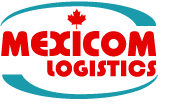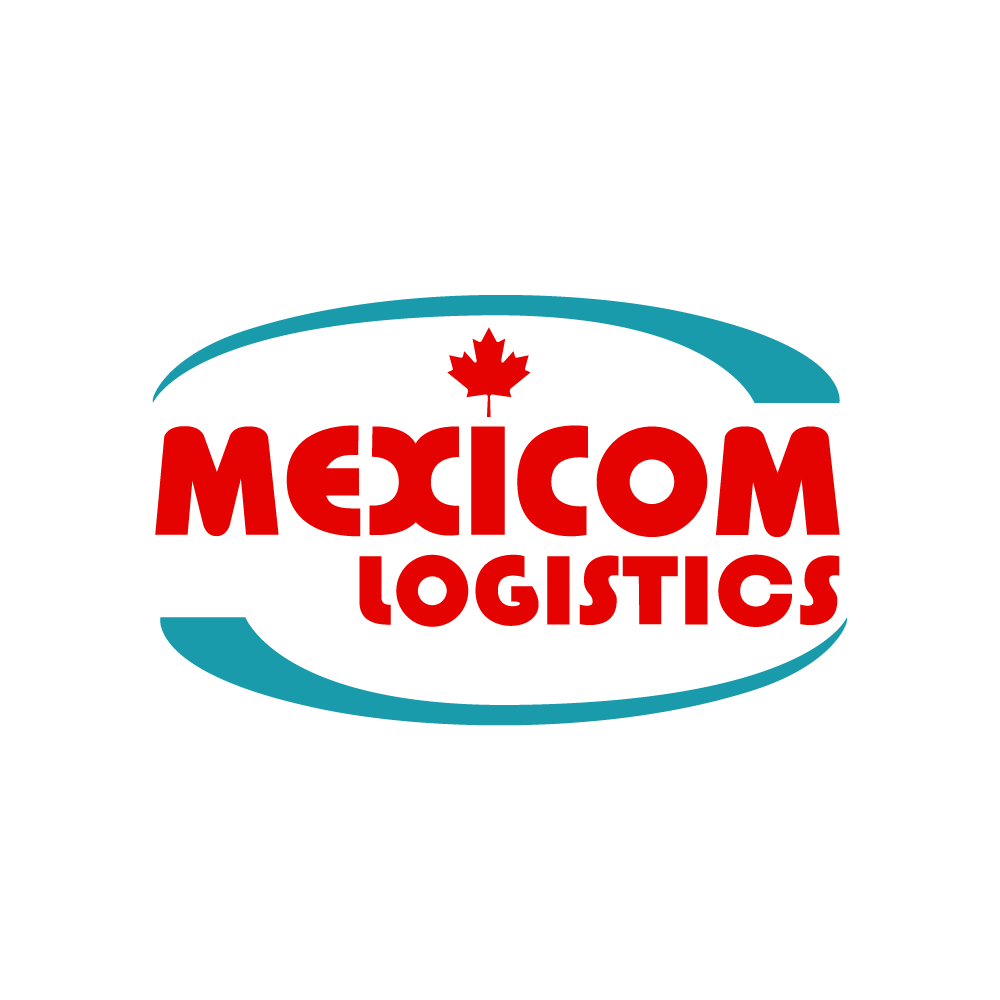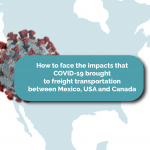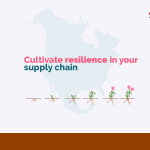What changed from NAFTA TO USMCA? Highlights of the agreement that will enter into force on July 1
The new Trade Agreement between Canada, the U.S. and Mexico will enter into force on July 1st.
The major changes to USMCA relate to:
• Dispute settlement
• Labour standards
• Environmental standards
• Intellectual property rights and enforcement
• Rules of origin in the following sectors:
- Automotive
- Transportation/logistics rules of origin
- Pharmaceutical
- Information technology and communication
- Cosmetic products
- Chemicals
- Textiles
New Market Access chapter
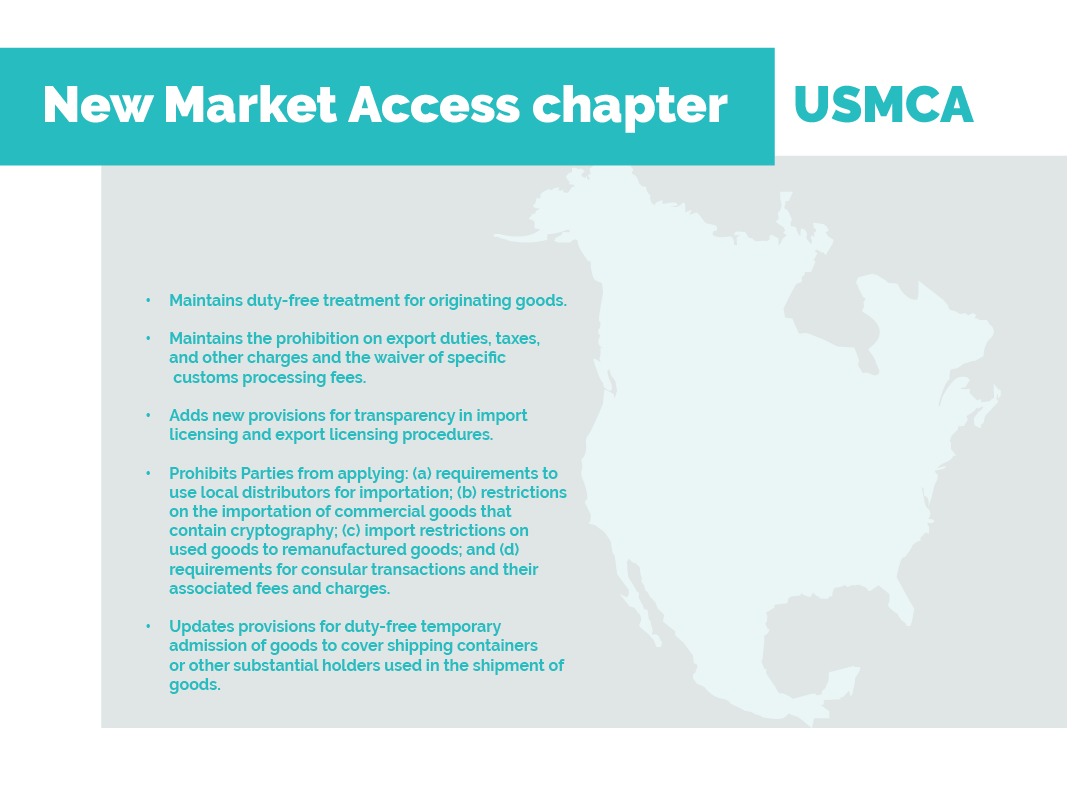
- Maintains duty-free treatment for originating goods.
- Maintains the prohibition on export duties, taxes, and other charges and the waiver of specific customs processing fees.
- Adds new provisions for transparency in import licensing and export licensing procedures.
- Prohibits Parties from applying: (a) requirements to use local distributors for importation; (b) restrictions on the importation of commercial goods that contain cryptography; (c) import restrictions on used goods to remanufactured goods; and (d) requirements for consular transactions and their associated fees and charges.
- Updates provisions for duty-free temporary admission of goods to cover shipping containers or other substantial holders used in the shipment of goods.
Automobiles and Automotive Parts
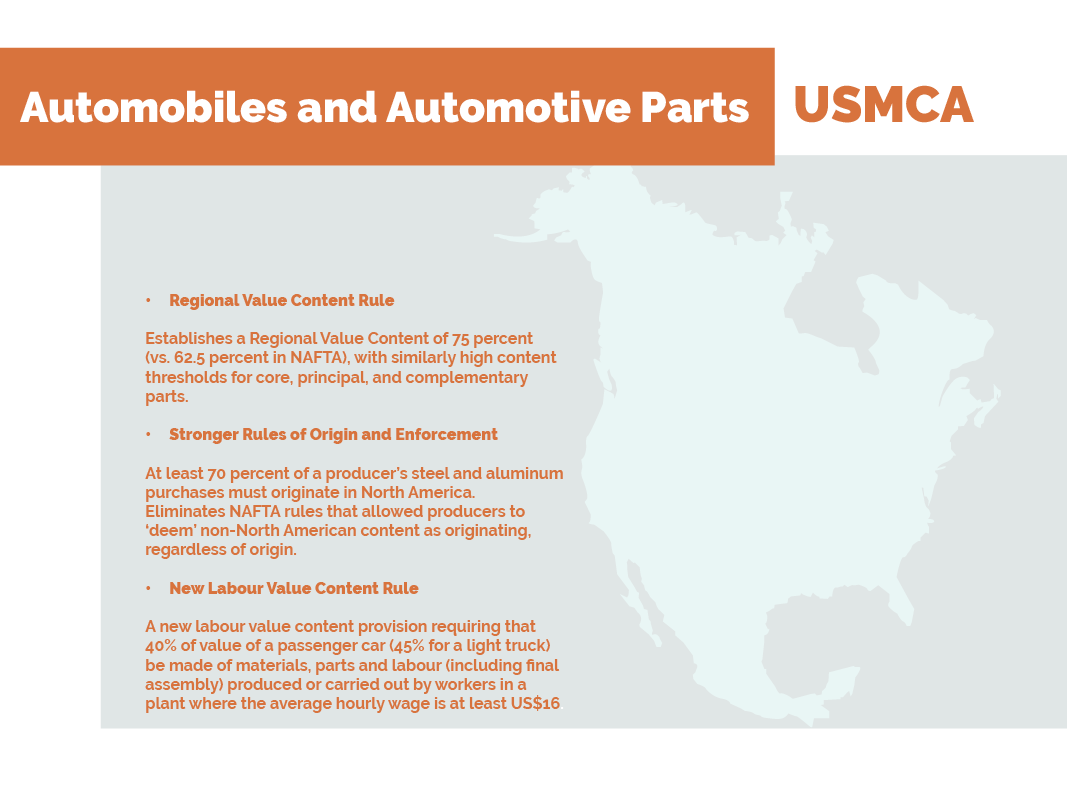
Regional Value Content Rule
Establishes a Regional Value Content of 75 percent (vs. 62.5 percent in NAFTA), with similarly high content thresholds for core, principal, and complementary parts.
Stronger Rules of Origin and Enforcement
At least 70 percent of a producer’s steel and aluminum purchases must originate in North America.
Eliminates NAFTA rules that allowed producers to ‘deem’ non-North American content as originating, regardless of origin.
New Labor Value Content Rule
A new labour value content provision requiring that 40% of value of a passenger car (45% for a light truck) be made of materials, parts and labour (including final assembly) produced or carried out by workers in a plant where the average hourly wage is at least US$16.
Agriculture
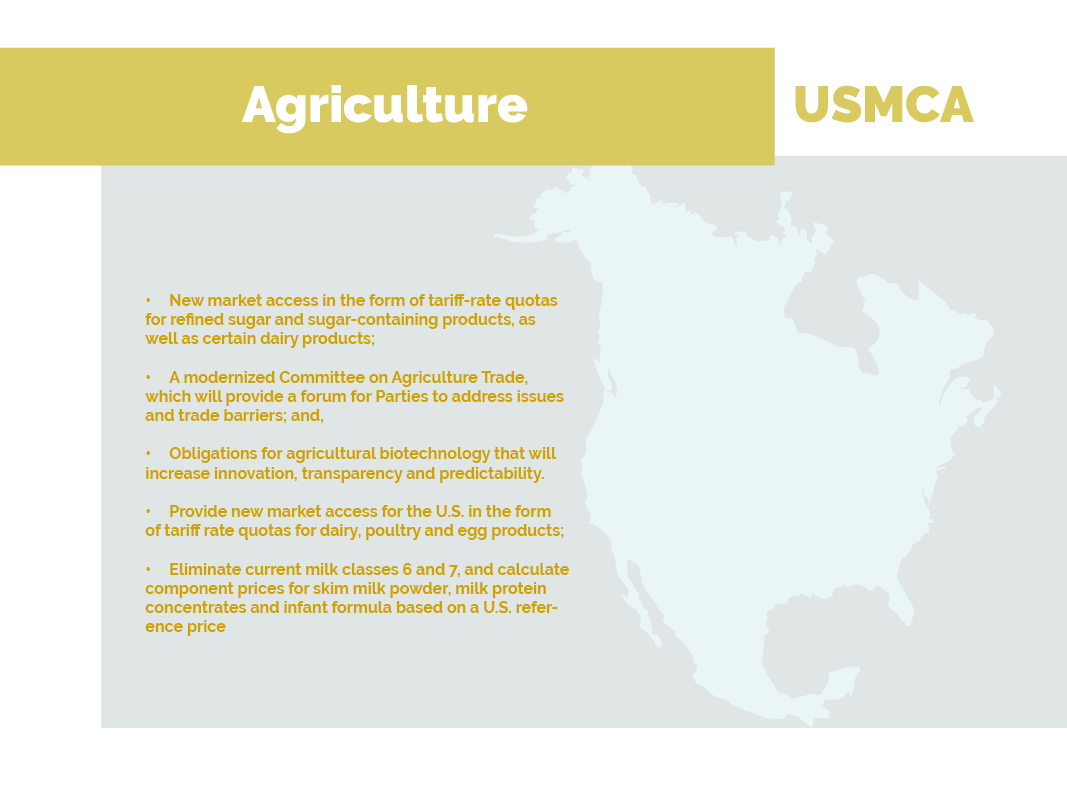
- New market access in the form of tariff-rate quotas for refined sugar and sugar-containing products, as well as certain dairy products;
- A modernized Committee on Agriculture Trade, which will provide a forum for Parties to address issues and trade barriers; and,
- Obligations for agricultural biotechnology that will increase innovation, transparency and predictability.
- Provide new market access for the U.S. in the form of tariff rate quotas for dairy, poultry and egg products;
- Eliminate current milk classes 6 and 7, and calculate component prices for skim milk powder, milk protein concentrates and infant formula based on a U.S. reference price
Textiles
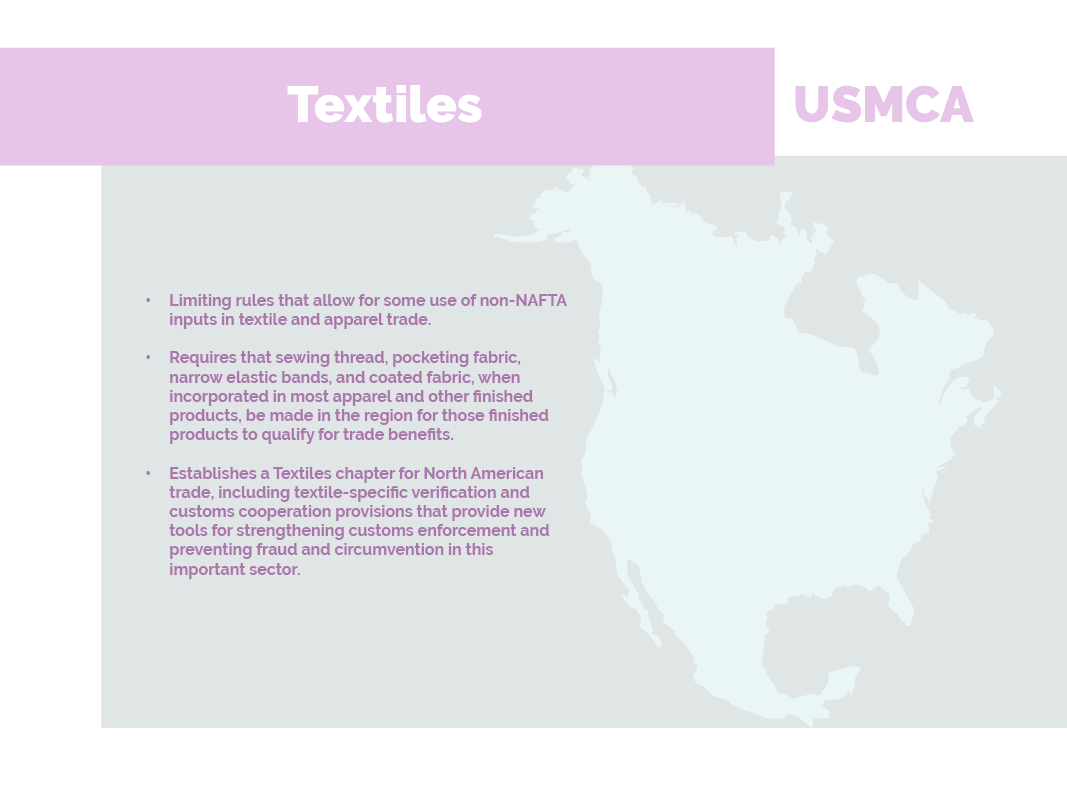
- Limiting rules that allow for some use of non-NAFTA inputs in textile and apparel trade.
- Requires that sewing thread, pocketing fabric, narrow elastic bands, and coated fabric, when incorporated in most apparel and other finished products, be made in the region for those finished products to qualify for trade benefits.
- Establishes a Textiles chapter for North American trade, including textile-specific verification and customs cooperation provisions that provide new tools for strengthening customs enforcement and preventing fraud and circumvention in this important sector.
Digital Trade
On the original trade, NAFTA, there are no rules for digital trade.
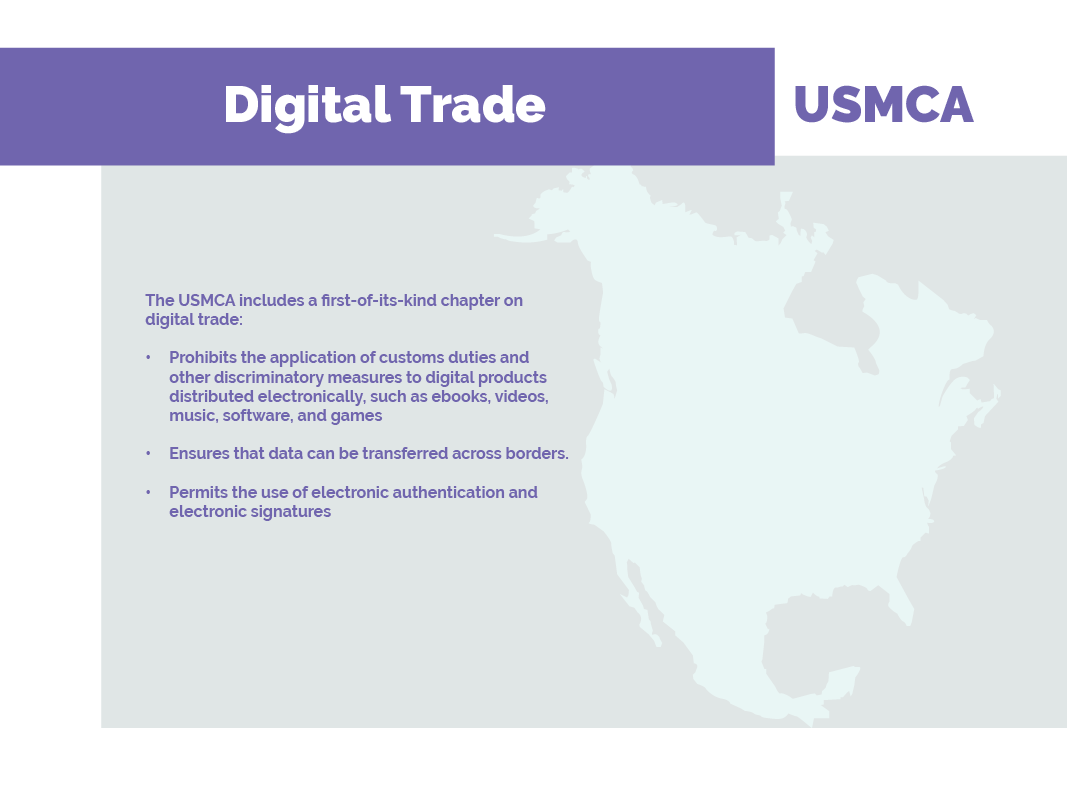
The USMCA includes a first-of-its-kind chapter on digital trade:
- Prohibits the application of customs duties and other discriminatory measures to digital products distributed electronically, such as ebooks, videos, music, software, and games
- Ensures that data can be transferred across borders.
- Permits the use of electronic authentication and electronic signatures
Environment

- An environment chapter that includes committing the Parties to do not lower their levels of environmental protection to attract trade or investment.
- Introduces new commitments to address global environmental challenges, such as illegal wildlife trade, illegal fishing and depletion of fish stocks, species at risk, conservation of biological diversity, ozone-depleting substances and marine pollution.
- Commits the three parties to implementing their respective obligations under the multilateral environmental agreements MEAs to which they are a party.
Labour
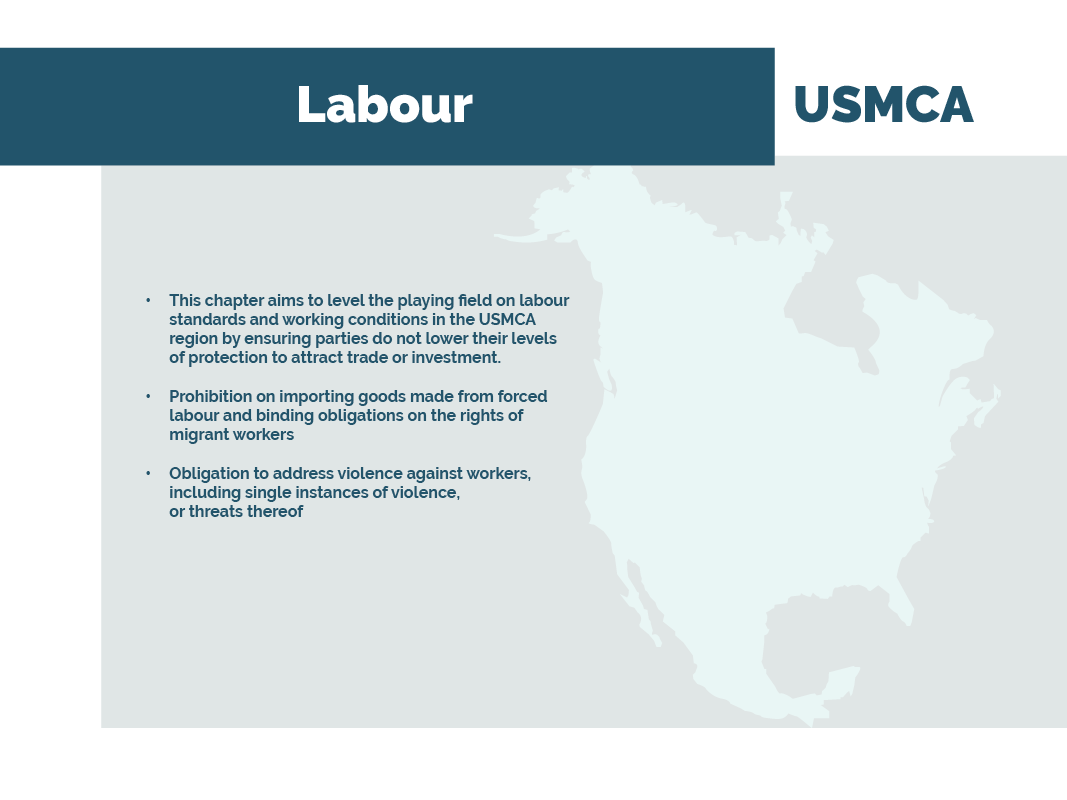
- This chapter aims to level the playing field on labour standards and working conditions in the USMCA region by ensuring parties do not lower their levels of protection to attract trade or investment.
- Prohibition on importing goods made from forced labour and binding obligations on the rights of migrant workers obligation to address violence against workers, including single instances of violence, or threats thereof
Dispute settlement
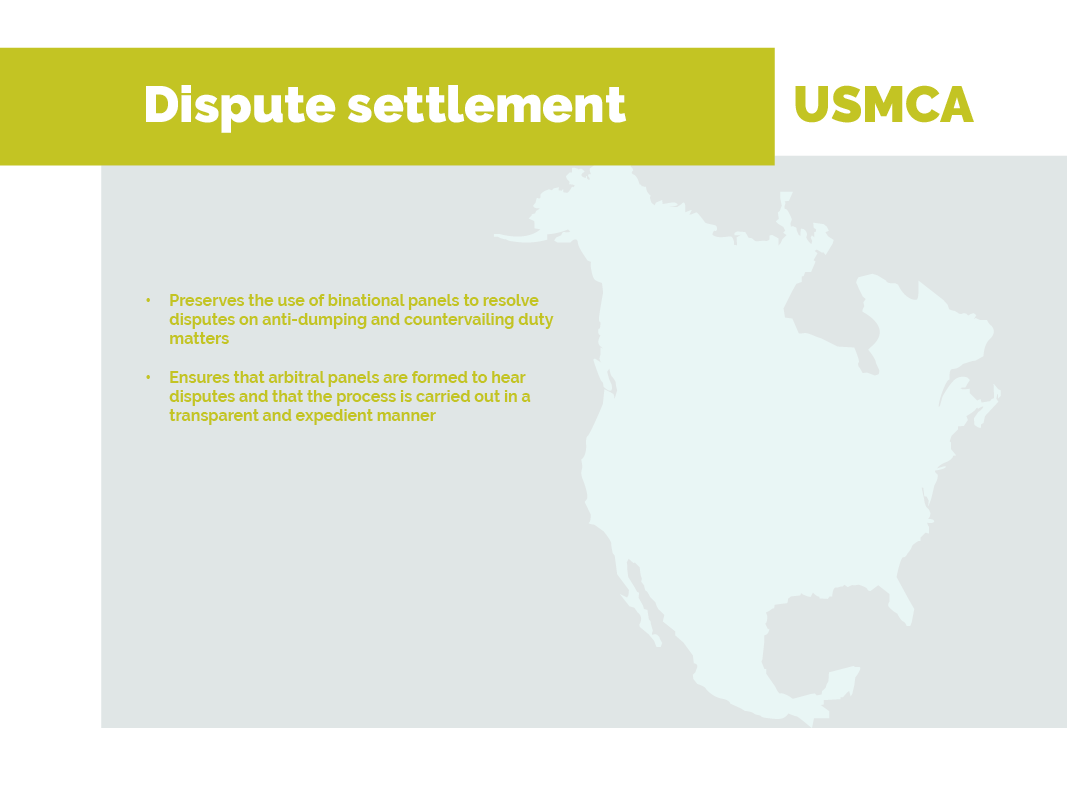
- Preserves the use of binational panels to resolve disputes on anti-dumping and countervailing duty matters
- Ensures that arbitral panels are formed to hear disputes and that the process is carried out in a transparent and expedient manner
Intellectual property
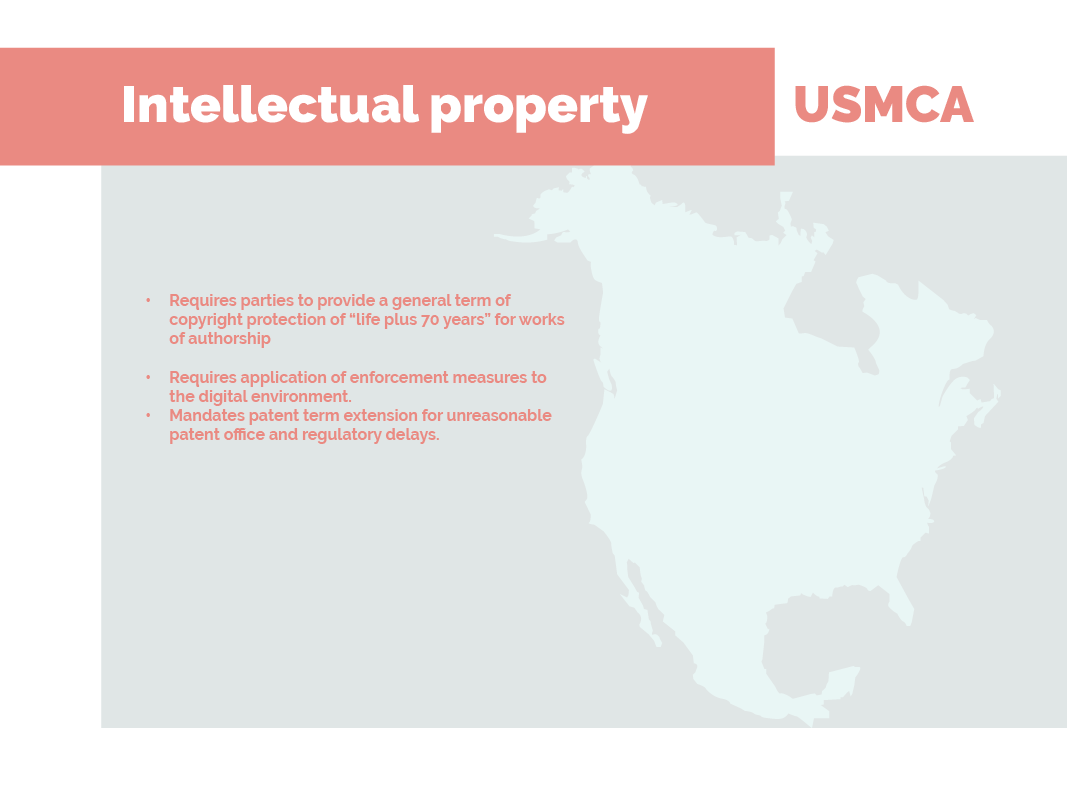
- Requires parties to provide a general term of copyright protection of “life plus 70 years” for works of authorship
- Requires application of enforcement measures to the digital environment.
- Mandates patent term extension for unreasonable patent office and regulatory delays.
Sources:
https://ustr.gov/trade-agreements/free-trade-agreements/united-states-mexico-canada-agreement/fact-sheets/rebalancing
Click to access pwc-usmca-moves-toward-entry-into-force-key-changes-and-next-steps.pdf
https://www.international.gc.ca/trade-commerce/trade-agreements-accords-commerciaux/agr-acc/cusma-aceum/summary-sommaire.aspx?lang=eng
